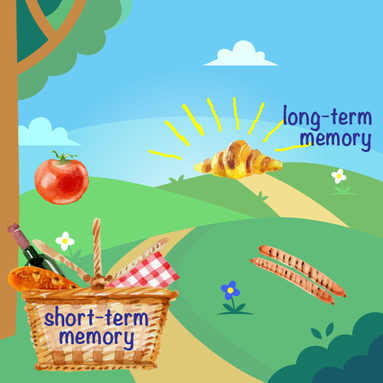| |||

It’s one of life’s most frustrating experiences: that feeling that you know something – or at least that you used to know something – and now you can’t quite call it up. It might be a person’s name, or where you last put down your keys or your glasses, but any way you slice it, the result is frustration or even embarrassment.
In those moments, it might also be hard to remember that it’s actually good for your brain to forget things.
Why? Well, there are at least two reasons.
First, you encounter so much information every day, it’s not useful to remember it all. Temporarily remembering today’s weather forecast, or the room number for that appointment, is relevant only for a short time, so it’s useful to retain it for that short period, and then throw it out.
Second, your brain’s natural forgetfulness helps you to train it to distinguish between what is important and what isn’t.
When you are learning something new, the new information first goes into your short-term memory. Think of your short-term memory as a small basket that can hold only a handful of items. As you go about your day, you need to keep putting new things into your basket, so you take some things out to make room.
Uh-oh! You’ve started to forget that new thing you’ve learned! So you retrace your steps to go pick it back up again. When you do that, you start to carve a path in your brain to that piece of information. In brain science terms, this effortful retrieval helps to strengthen the neural pathways to that piece of information. Regularly engaging in effortful retrieval of a particular piece of information strengthens your ability to recall it, and gradually moves it into long-term memory.
It’s not as effective to retrieve or repeat information that is still in your short-term memory (which is like putting something into your basket, pulling it back out, putting it back in again) because even though it feels like you know it, it hasn’t been moved into your long-term memory and the learning is superficial. It's soon going to get crowded out of your basket as you move onto some other activity.
To really get something into your long-term memory, you need spaced repetition. You need to practice retrieving that piece of information over time, forgetting it just enough between retrievals that it takes a little bit of work, so you can strengthen that neural pathway. This is like creating a trail through the bush. You have to keep walking that path and clearing the weeds and branches out of the way to get the trail clear.
Over time, your brain also combines related bits of information together into more complex structures so that you can access those chunks as a whole rather than as separate things. Now you are becoming an expert!
Knowing all this might help you to understand why practice and study affect your brain, but how does it help you remember names or where you put your glasses? In our next blog post, we’ll look at some strategies for improving memory.
In those moments, it might also be hard to remember that it’s actually good for your brain to forget things.
Why? Well, there are at least two reasons.
First, you encounter so much information every day, it’s not useful to remember it all. Temporarily remembering today’s weather forecast, or the room number for that appointment, is relevant only for a short time, so it’s useful to retain it for that short period, and then throw it out.
Second, your brain’s natural forgetfulness helps you to train it to distinguish between what is important and what isn’t.
When you are learning something new, the new information first goes into your short-term memory. Think of your short-term memory as a small basket that can hold only a handful of items. As you go about your day, you need to keep putting new things into your basket, so you take some things out to make room.
Uh-oh! You’ve started to forget that new thing you’ve learned! So you retrace your steps to go pick it back up again. When you do that, you start to carve a path in your brain to that piece of information. In brain science terms, this effortful retrieval helps to strengthen the neural pathways to that piece of information. Regularly engaging in effortful retrieval of a particular piece of information strengthens your ability to recall it, and gradually moves it into long-term memory.
It’s not as effective to retrieve or repeat information that is still in your short-term memory (which is like putting something into your basket, pulling it back out, putting it back in again) because even though it feels like you know it, it hasn’t been moved into your long-term memory and the learning is superficial. It's soon going to get crowded out of your basket as you move onto some other activity.
To really get something into your long-term memory, you need spaced repetition. You need to practice retrieving that piece of information over time, forgetting it just enough between retrievals that it takes a little bit of work, so you can strengthen that neural pathway. This is like creating a trail through the bush. You have to keep walking that path and clearing the weeds and branches out of the way to get the trail clear.
Over time, your brain also combines related bits of information together into more complex structures so that you can access those chunks as a whole rather than as separate things. Now you are becoming an expert!
Knowing all this might help you to understand why practice and study affect your brain, but how does it help you remember names or where you put your glasses? In our next blog post, we’ll look at some strategies for improving memory.
Audio read and recorded by Fawn Fritzen.

